- Home
- Linda Lael Miller
Glory, Glory Page 12
Glory, Glory Read online
Page 12
“Glory.”
She sighed and faced her mother squarely, setting the Spanish rice on a trivet on the counter. “Jesse declared war a few days ago, and I fired back.”
“What do you mean, Jesse declared war?”
“He told Liza that he’s her father. Then he told me to stay away from her until further notice. So I saw a lawyer and filed for visitation rights.”
Delphine’s normally pink cheeks went white for a moment. “Uh-oh. What was Jesse’s response to that?”
“I don’t know yet,” Glory said. “He probably didn’t get the papers until this afternoon.”
Delphine gave a deep sigh, then put her arms around Glory and hugged her tightly. “Well, what’s done is done. Harold and I will stick by you, of course.”
Glory returned her mother’s embrace before stepping back. “I’m sorry this had to happen now, Mama, right before your wedding and everything.”
Delphine and Harold were to be married on New Year’s Eve, in a candlelight service at the First Lutheran Church. “You have enough to worry about without fretting over that,” the older woman said. “We’ll all just have to take this one step at a time.”
“You’re on my side?” Glory asked, surprised, as, still wearing oven mitts, she picked up the casserole dish to carry it to the table in the dining area. Delphine followed with the salad.
“Good heavens, sweetheart, did you expect me to take Jesse’s part? I’m your mother.”
“I know you like Jesse.”
Delphine kissed Glory’s cheek. “Maybe so, but I love you.”
After that, she and Delphine and Harold had a quiet dinner amid the twinkling sparkles cast by the tree. As soon as they’d cleared away the dishes, it was time to leave for the Christmas pageant.
“When you get home tonight, after seeing Liza again,” Glory said to her mother, when she was settled in the backseat of Harold’s car, “I want you to take a good look at that old picture of your grandmother Bridget.”
Delphine nodded, but her smile was tempered with sadness, and she was quiet as they all drove to the church.
The requisite snow was falling as they left the car and followed the crowd up the steps and into the building. In the sanctuary, fragrant garlands of evergreen decorated the altar railings, and someone had constructed a remarkably authentic stable on the dais, complete with straw. There were candles waiting on the pews, and each person took one before sitting down.
Glory quickly scanned the crowd for Jesse and was relieved not to see him. Maybe, she thought in a spate of wild optimism, he was somewhere battling crime and wouldn’t be able to attend the pageant, at all.
He came in about one second after she’d formulated the idea and took a place in the pew directly in front of hers, turning to give her a challenging stare.
Harold, who suspected nothing, thrust out his hand and said, “Hello, Jesse. How’s the lawman business these days?”
Jesse’s face thawed visibly as he shook Harold’s hand. “Unfortunately, it’s thriving.” He looked at Delphine and gave her a roguish wink. “By the way, Harold, congratulations on marrying the prettiest girl in town.”
His friendliness to Harold and Delphine, which clearly shut her out, was almost as difficult for Glory to cope with as the cold anger he bore toward her. It was a tremendous relief to her when the organist started the prelude and everyone sat down.
Candles were lit, and the lights turned down, and the pastor delivered a short sermon on the significance of the season. Glory tried to concentrate on the real meaning of Christmas, but all she could do was stare at the back of Jesse’s head and ache because even after all these years they couldn’t be civil to each other.
Presently the pastor finished speaking, and the pageant began. Mary and Joseph came up the center aisle to a cardboard door set up at one side of the dais, and Joseph knocked, causing it to waver dangerously.
The innkeeper opened it and, with audible prompting from Jill, who was sitting in the front pew, informed the weary couple that there was no room at the inn. They could, however, sleep in the stable if they wanted to.
Mary and Joseph trekked wearily over to the makeshift barn. They knelt in the straw, as if to pray, and there was a moment of dramatic import before Jill rushed up and put a baby doll in the manger.
Meanwhile, shepherds came up the aisle in burlap robes, with bath towels on their heads and sandals on their feet, and angels fluttered in through the doorway to the pastor’s study. Glory’s heart surged into her throat as she watched Liza take her place with the others, resplendent in her costume.
There were songs and Bible verses, but Glory had eyes and ears only for her daughter. Like Mary, she pondered the miracle of birth in her heart.
All too quickly, the evening ended. As the players filed down the aisle to collect their reward of cookies and hot cider in the church fellowship hall, Liza’s eyes linked with Glory’s, and Glory felt a stab at the sorrow she saw in her child’s gaze.
Obviously Jesse had announced his decision to keep Glory and Liza apart. An anger entirely unsuited to her surroundings welled up inside Glory, and she rushed out of the sanctuary, through the narthex, and outside into the biting cold. There she stood gripping the stair railing, her eyes burning with furious tears.
She sensed Jesse’s presence a moment before he came to stand on the step beside her.
“Glory—”
She crammed her hands into her coat pockets so she wouldn’t start pounding at his chest in an hysterical rage. “Did you think I wouldn’t fight back, Jesse?” she whispered. “Did you think I’d let you take Liza away from me, like your grandfather did?”
“Glory, listen to me.”
“No, I won’t listen to you!” Glory blurted out, moving the rest of the way down the steps. “I’ve heard it all, Jesse. You say you’re afraid I’ll make Liza love me and then desert her, but the real truth is you want to punish me for hurting you! You’re not thinking about her, you’re thinking about yourself!”
Although most people had gone downstairs to share in the celebration and the refreshments, there were a few souls trailing out to go home. Both Glory and Jesse lapsed into a stiff silence until they were alone again.
Then he took her arm and hustled her a little way down the street. “Maybe I am thinking about myself—after all, I’m the one who’s had the most experience with your methods—but you’re not operating out of pure altruism yourself, lady. You want to soothe your conscience, and you’re not going to use Liza to do it!”
“She’ll guess, Jesse,” Glory said evenly, having made a great effort at keeping her temper. “It doesn’t take a rocket scientist to count backwards ten years and look at the pictures in a high-school yearbook!”
“I’ll handle that when it happens. Right now, I want you to leave her alone.”
Before Glory could reply, she saw an angel with pigtails standing on the church steps and gazing wistfully in their direction. Glory ached with everything in her to gather the child into her arms and tell her that she loved her, that giving her up was the single greatest regret of her life. “Let’s call a cease-fire for now, Jesse,” she said with a sigh. “An angel has just stepped into range.”
Jesse turned and saw Liza there and instantly he was in motion. “You were fantastic!” he told his daughter, scooping her into his arms and starting up the church steps. “Let’s go get some of that cider before it’s all gone.”
Over Jesse’s shoulder, Liza stared forlornly back at Glory and wiggled her fingers in farewell.
Struggling to regain her equilibrium, Glory waited on the steps until Delphine and Harold came out a few minutes later. Maybe Jesse was right, she thought miserably, as her mother and future stepfather drove her home. Maybe she was just thinking of herself, and it would be better if she moved on and started a new life somewhere else.
After saying good-night to Delphine and Harold, Glory went into her apartment and flipped on the Christmas-tree lights, leaving the rest of
the living room dark. Then she sank down onto the couch, still wearing her coat and gloves, and murmured, “Oh, Dylan, what should I do—stay or go?”
She supposed talking to her dead brother—a foible that seemed excusable when she was standing beside his grave—meant she’d finally gone around the bend in the river and would never be able to paddle back, but she didn’t care.
The radiators clanged, but Glory knew that wasn’t a message from the other side. It just meant the landlord was too cheap to put in a modern heating system. With a sigh she took off her coat and gloves, kicked away her boots and flipped on the television set.
Glory watched one program and then another and then another, and if her life had depended on it she couldn’t have said what any of the shows was about. Awakening to find herself hunched up on the couch, cold and achy, she rose, switched off the TV and the tree lights and went to bed.
Tomorrow was another day, and the war between her and Jesse would undoubtedly continue. She’d need her strength.
In the morning, Glory went through her usual routine of showering, eating breakfast, putting on her makeup, blow drying her hair and getting dressed. She felt like a wooden mannequin, caused by some unseen magician to move and function but not quite brought to life.
Since the bank didn’t open until ten, and Glory reported to work at nine, she used her key to let herself in. The two tellers smiled and said “Good morning” in chorus, and Glory, still the mannequin, responded as if she’d been programmed.
She’d no more than put away her purse and gotten out her appointment book for the day when Shelby, one of the secretaries, came in with coffee. She was a pretty dark-eyed girl with long chocolate-brown hair.
“Someone evidently came by to see you either last night or this morning,” Shelby said with a smile, producing an envelope and setting it on Glory’s desk, along with the coffee. “I found this in the night depository.”
A feeling of dread clenched Glory’s heart and stomach as she picked up the envelope. Her name was written across the front in teetering cursive letters. “Thank you,” she said distractedly, wanting to be alone.
Shelby left, and Glory opened the envelope and took out the folded page of notebook paper inside.
Dear Glory, the same childish hand had written, and Glory groped blindly for the telephone receiver as she read on.
Liza stood uncertainly beside the railroad track, holding her Uncle Jesse’s high-school yearbook under one arm and her piggy bank under the other. When the train stopped—as yet, there was no sign of it—Liza meant to climb into one of the freight cars just like she’d seen a girl do in the movies once.
Her feet were cold, even though she had two pairs of socks inside her boots. She’d worn jeans and a flannel shirt and thermal underwear so she wouldn’t get sick and die, like Beth in Little Women.
She sniffled. She probably shouldn’t have climbed up on the concrete edge that protected the flower bed at the bank and dropped that stupid note into the night-deposit box, because Glory would most likely call Uncle Jesse as soon as she read it.
Glory. Awkwardly, Liza set the piggy bank and the yearbook down in the snow and hugged herself. If Glory didn’t want to be her mommy, it was all right. Liza didn’t want to be Glory’s daughter, either.
Much.
In the distance the train whistle hooted, and Liza drew in her breath. She was afraid the tears would freeze in her eyelashes if she cried, and she really wanted to cry.
She supposed she’d known Glory was somebody special from the first time she’d met her. Last night, lying in bed, all wide awake from the excitement of the Christmas pageant, the whole thing had come to Liza in a shattering flash. The words she’d heard Glory say on the sidewalk in front of the church had come back to her, their meaning crystal-clear.
She’ll guess, Jesse. It doesn’t take a rocket scientist to count backwards ten years and look at the pictures in a high-school yearbook!
Uncle Jesse was her father, he’d admitted it himself. And he and Glory had been in love ten years before, and Liza was nine years old. It took nine months for a baby to grow inside a woman’s stomach, according to a special she and Aunt Ilene had watched on PBS. Besides that, Aunt Ilene had told her just the other day that Uncle Jesse was always mad at Glory because he’d loved her very much once upon a time and she’d gone away.
Liza wiped her nose with a mittened hand. If she could have had any woman in the world for a mommy, besides the one she’d lost in the plane crash, of course, she would have picked Glory Parsons. That made the thought that Glory hadn’t wanted her, that she’d gone off and left her all alone in some hospital right after she was born, for pity’s sake, impossible for Liza to accept.
She’d decided to go away somewhere and raise herself. Even the fact that it was almost Christmas and she probably would have gotten a Nintendo from Uncle Jesse couldn’t make her stay.
The train chugged around a corner, coming out of the snowy trees, making a great clatter as it approached. Liza had seen it stop in just this place about ten million times, so she stooped and picked up the yearbook and the piggy bank and prepared to jump on board.
The whistle shrieked a greeting, and Liza waited patiently, hoping that raising herself wouldn’t cost more than 15.87.
“Jesse!” Glory gasped the moment the sheriff of Pearl River County came on the line. “Liza’s run away! She left a note in the night depository—oh, God, Jesse, do something!”
His voice was surprisingly calm. “Glory, take a deep breath and get a grip on yourself. Did she say where she was going?”
“No,” Glory burst out, half sick with panic.
“Read me the note,” Jesse said evenly.
Glory began, the lined notebook paper crackling in her hand because she was trembling so hard.
Dear Glory,
If you don’t want me, that’s okay, because I don’t want you, either. You left me at the hospital. The reason I can’t stay is, I don’t want you and Uncle Jesse to fight about me anymore. And I don’t want to see you in the bank and know you didn’t like me enough to keep me. I know Uncle Jesse and Aunt Ilene will miss me a whole lot, and I would have got a bunch of presents at Christmas. I guess they can take back whatever stuff they bought and get a refund.
Love, Liza
“Listen to me,” Jesse said, his voice stern. “We’re going to find her. I’ll send a deputy to the bus station and we’ll cover all the highways leading out of town. Liza will be all right, Glory.”
“Like Dylan was all right?” Glory cried. “Like Sandy and Gresham—”
“Stop it, Glory. I don’t have time for this.”
“Come and get me, Jesse. I want to go with you.”
Jesse gave in, but reluctantly. “I’ll be there in five minutes. If you’re not waiting on the sidewalk, I won’t even slow down, let alone stop and twiddle my thumbs until you come out of the bank. Is that clear?”
Glory was already out of her chair and groping for her purse. “It’s clear, Jesse. I promise it’s clear.”
He hung up with a crash, and Glory ran to tell Mr. Baker there was an emergency in the family, but she didn’t explain the details. He very kindly excused her to go and take care of it, calling after her that he hoped everything would work out all right.
Jesse’s patrol car appeared an instant after she stepped out of the bank and, as good as his word, he just barely stopped at all. The tires were spinning again before Glory had managed to close her door or fasten the seat belt.
“I hope you’re satisfied,” Jesse rasped, just before he reached for the microphone to radio the men he’d dispatched to different parts of town.
Glory bit into her lower lip and said nothing. If anything had happened to Liza, she was never going to forgive herself.
Nine
“This is all my fault,” Glory fretted as she and Jesse began the search for their runaway daughter. “If I hadn’t come back here—”
Jesse’s jawline hardened for a moment,
but then he reached out and touched Glory’s knee. “Take it easy,” he told her. “Liza’s nine years old—she couldn’t have gotten far.”
Glory didn’t find it at all comforting to realize that Jesse was taking the road that led to the small park down by the river. The water would be frigid at this time of year, even frozen over in places, and Glory’s whole being seemed to clench in terror as she prayed Liza hadn’t gone there.
“W-why the river?” she managed to ask, when Jesse brought the patrol car to a stop in the small, freshly plowed parking area that overlooked an array of snow-mounded picnic tables and barbecue pits.
“We’ve had some happy times here,” Jesse said in a hoarse, distant voice. “Watch out that you don’t break your neck in those damn high heels.”
Only then did Glory realize that she wasn’t suitably dressed for a search in her gray Ultrasuede suit, ruffly blouse and charcoal eel-skin heels. She was out of the car as fast as Jesse was, but keeping pace with him immediately proved impossible.
He started down the pristine slope toward the picnic area, his strides long, his plain boots perfectly suited to the task. Cupping his hands to his mouth, he yelled, “Liza!”
Glory picked her way along behind him, moving as fast as she could, her eyes scanning the river, with its shards of sun-glittered ice. Please God, she prayed, don’t let her be in that water.
Jesse gave the landscape around them what Glory perceived to be a cursory examination, then announced, his breath white in the crisp air, “She isn’t here.”
“How do you know?” Glory demanded. Even though she’d just prayed that Liza hadn’t come near the river, she wanted to leave no stone unturned.
With a sweeping gesture of one arm, Jesse took in the whole park. “No tracks in the snow. Nobody’s been down here in the last few days except us.” His brown eyes ran over Glory’s inadequate clothing with a sort of tolerant contempt. Then, without a word of warning, he strode over to her, lifted her up into his arms, and started carrying her toward the parking lot. “You’re heavier than you look,” he commented.

 Angelfire
Angelfire Moonfire
Moonfire The Yankee Widow
The Yankee Widow The Cowboy Way
The Cowboy Way Country Strong--A Novel
Country Strong--A Novel Forever and a Day
Forever and a Day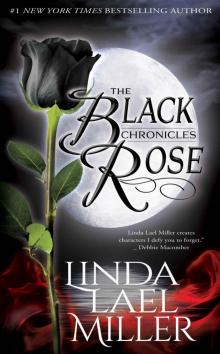 The Black Rose Chronicles
The Black Rose Chronicles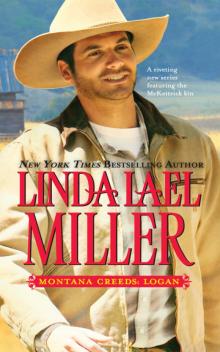 Montana Creeds: Logan
Montana Creeds: Logan My Darling Melissa
My Darling Melissa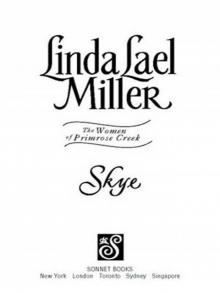 Skye
Skye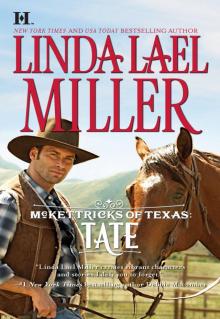 McKettricks of Texas: Tate
McKettricks of Texas: Tate Springwater Seasons
Springwater Seasons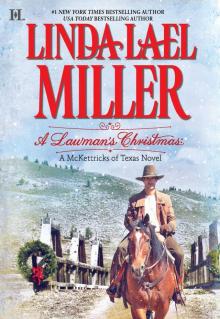 A Lawman's Christmas
A Lawman's Christmas Sierra's Homecoming
Sierra's Homecoming![Parable, Montana [4] Big Sky Summer Read online](http://i1.bookreadfree.com/i/03/22/parable_montana_4_big_sky_summer_preview.jpg) Parable, Montana [4] Big Sky Summer
Parable, Montana [4] Big Sky Summer One Last Weekend
One Last Weekend A Stone Creek Collection, Volume 2
A Stone Creek Collection, Volume 2 Tonight and Always
Tonight and Always Fletcher's Woman
Fletcher's Woman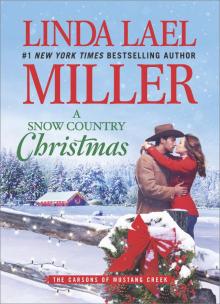 A Snow Country Christmas
A Snow Country Christmas The Last Chance Cafe
The Last Chance Cafe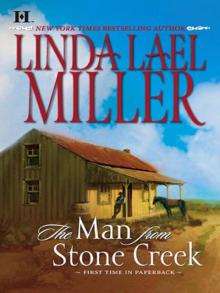 The Man from Stone Creek
The Man from Stone Creek Wanton Angel
Wanton Angel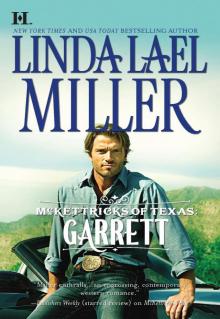 McKettricks of Texas: Garrett
McKettricks of Texas: Garrett Memory's Embrace
Memory's Embrace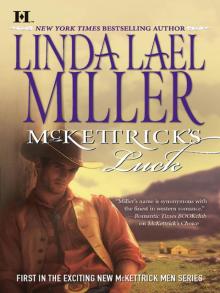 McKettrick's Luck
McKettrick's Luck Pirates
Pirates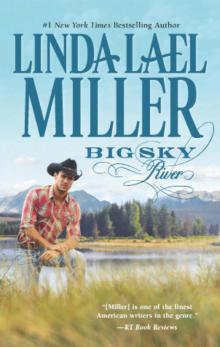 Big Sky River
Big Sky River Willow: A Novel (No Series)
Willow: A Novel (No Series) The McKettrick Legend: Sierra's HomecomingThe McKettrick Way (Hqn)
The McKettrick Legend: Sierra's HomecomingThe McKettrick Way (Hqn) Glory, Glory: Snowbound with the Bodyguard
Glory, Glory: Snowbound with the Bodyguard Two Brothers
Two Brothers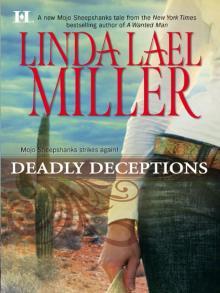 Deadly Deceptions
Deadly Deceptions Big Sky Secrets
Big Sky Secrets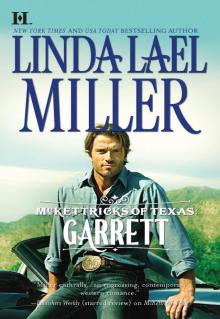 Garrett
Garrett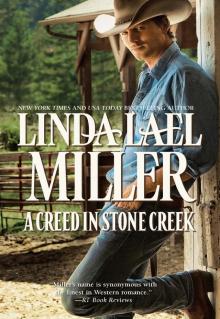 A Creed in Stone Creek
A Creed in Stone Creek Megan
Megan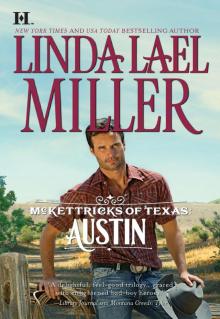 McKettricks of Texas: Austin
McKettricks of Texas: Austin Knights
Knights High Country Bride
High Country Bride More Than Words Volume 4
More Than Words Volume 4 Glory, Glory
Glory, Glory Daring Moves
Daring Moves Lily and the Major
Lily and the Major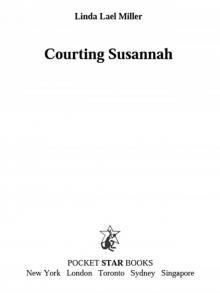 Courting Susannah
Courting Susannah Banner O'Brien
Banner O'Brien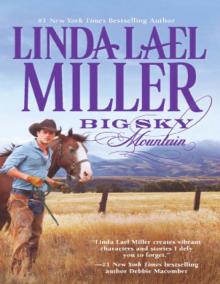 Big Sky Mountain
Big Sky Mountain Linda Lael Miller Bundle
Linda Lael Miller Bundle McKettrick's Pride
McKettrick's Pride A Stone Creek Collection Volume 1
A Stone Creek Collection Volume 1 A Wanted Man
A Wanted Man Big Sky Country
Big Sky Country The McKettrick Legend
The McKettrick Legend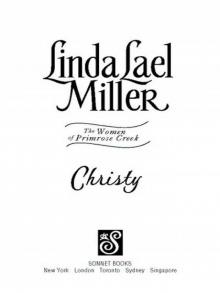 Christy
Christy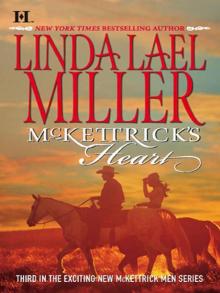 McKettrick's Heart
McKettrick's Heart Resurrection
Resurrection Arizona Heat
Arizona Heat Secondhand Bride
Secondhand Bride Snowflakes on the Sea
Snowflakes on the Sea Montana Creeds: Tyler
Montana Creeds: Tyler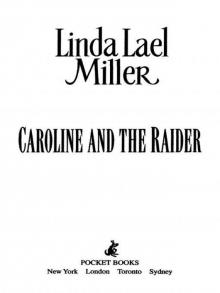 CAROLINE AND THE RAIDER
CAROLINE AND THE RAIDER A Proposal for Christmas: State SecretsThe Five Days of Christmas
A Proposal for Christmas: State SecretsThe Five Days of Christmas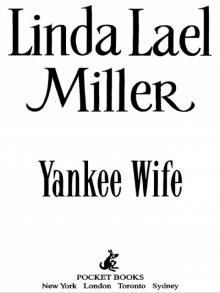 Yankee Wife
Yankee Wife Linda Lael Miller Montana Creeds Series Volume 1: Montana Creeds: LoganMontana Creeds: DylanMontana Creeds: Tyler
Linda Lael Miller Montana Creeds Series Volume 1: Montana Creeds: LoganMontana Creeds: DylanMontana Creeds: Tyler The Christmas Brides
The Christmas Brides McKettricks Bundle
McKettricks Bundle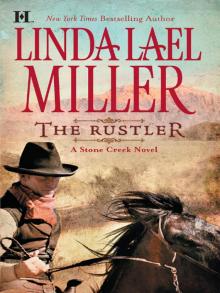 The Rustler
The Rustler Here and Then
Here and Then Only Forever
Only Forever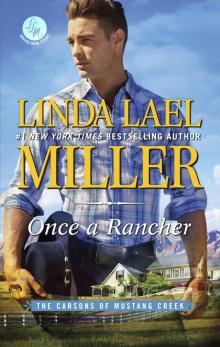 Once a Rancher
Once a Rancher The 24 Days of Christmas
The 24 Days of Christmas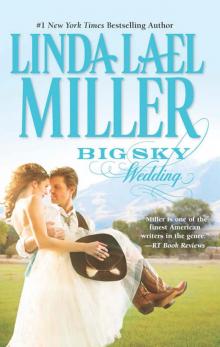 Big Sky Wedding
Big Sky Wedding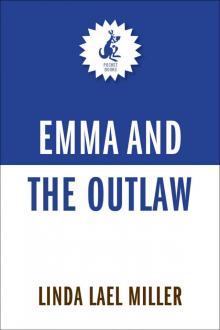 Emma and the Outlaw
Emma and the Outlaw Princess Annie
Princess Annie Wild About Harry
Wild About Harry That Other Katherine
That Other Katherine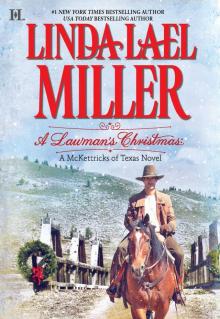 A Lawman's Christmas: A McKettricks of Texas Novel
A Lawman's Christmas: A McKettricks of Texas Novel Just Kate: His Only Wife (Bestselling Author Collection)
Just Kate: His Only Wife (Bestselling Author Collection)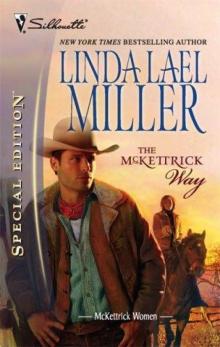 The McKettrick Way
The McKettrick Way Part of the Bargain
Part of the Bargain Taming Charlotte
Taming Charlotte Holiday in Stone Creek
Holiday in Stone Creek One Last Look
One Last Look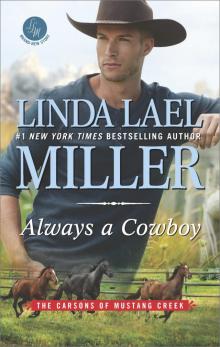 Always a Cowboy
Always a Cowboy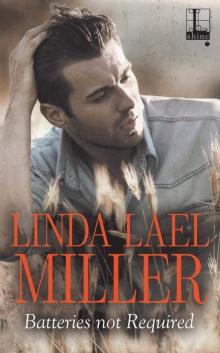 Batteries Not Required
Batteries Not Required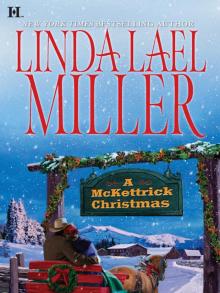 A McKettrick Christmas
A McKettrick Christmas For All Eternity
For All Eternity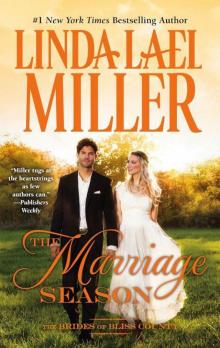 The Marriage Season
The Marriage Season Corbin's Fancy
Corbin's Fancy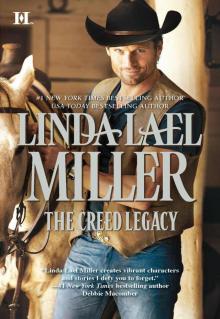 The Creed Legacy
The Creed Legacy Springwater Wedding
Springwater Wedding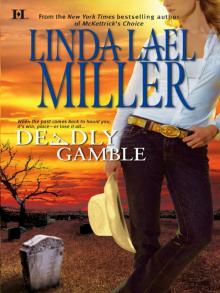 Deadly Gamble
Deadly Gamble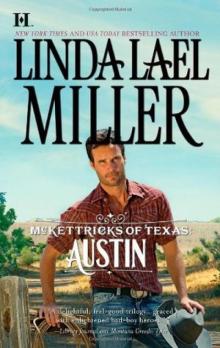 Austin
Austin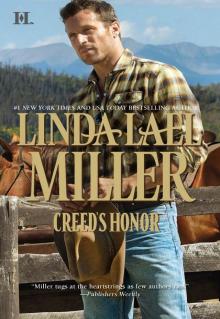 Creed's Honor
Creed's Honor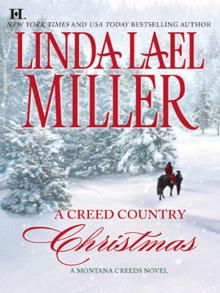 A Creed Country Christmas
A Creed Country Christmas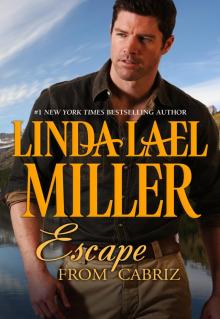 Escape from Cabriz
Escape from Cabriz There and Now
There and Now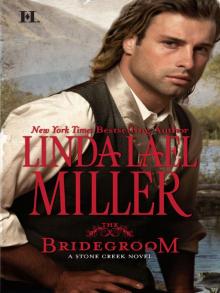 The Bridegroom
The Bridegroom State Secrets
State Secrets Bridget
Bridget